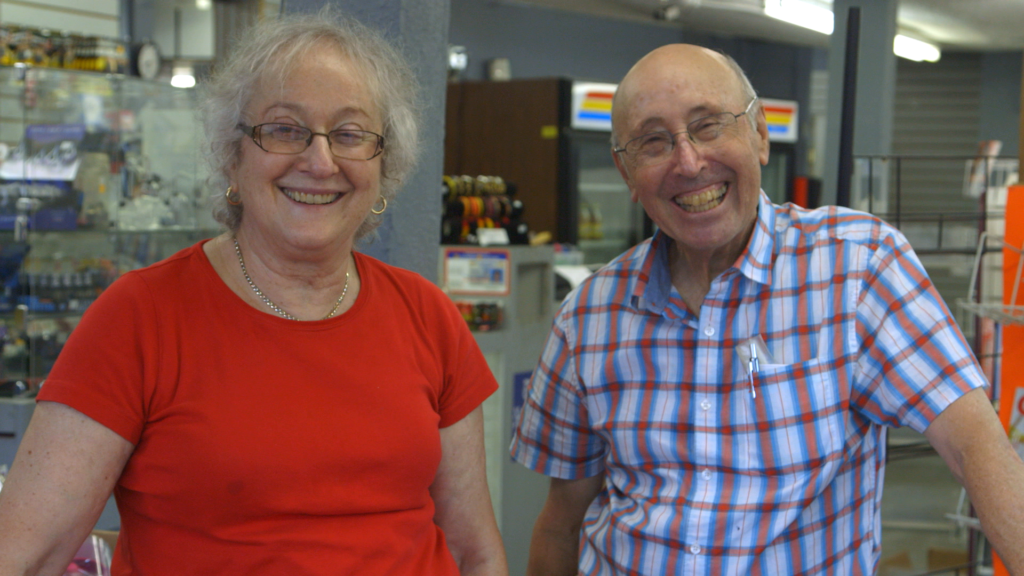
“I don’t know what you’re gonna make out of all this filming. No one is going to be interested in this.”
This is what Karen Mason says to her daughter, Rachel, about halfway through the film, Circus of Books. Rachel is directing a documentary about her parents, and a common theme throughout the resulting movie is Karen’s doubts that anyone would care about her story. She and her husband, Barry, are business owners and parents to three children. They raised their family in a modest home in Los Angeles, attending synagogue every week. They were a straight, middle-class, Jewish couple just trying to make ends meet. And at one point, they were the largest distributor of hardcore, gay films in the United States. I don’t know about you, but that sounds pretty interesting.
I’m not going to get into all the details of just exactly how this all happens, but in a nutshell, it comes down to two parents who were trying to provide for their family. After running into financial difficulties in the 1970s, Karen and Barry answered an ad looking for distributors for Larry Flynt’s burgeoning publishing empire. They quickly became Flynt’s biggest distributor in Los Angeles, and in 1982, they took over the lease on the shop Book Circus. They rechristened it Circus of Books, and began selling hardcore materials to the gay community. This coincided with the VHS revolution, and their business flourished. Eventually, they started a production company and began producing the films themselves. And all the while, they kept their business a secret from family, friends, and even their own children.
Circus of Books closed its doors in 2019 after its business model was gutted by the advent of the internet. But for almost four decades, the store was the centre of the LGBTQ community in Los Angeles. The film touches on many important moments in Los Angeles’ gay history, including the Black Cat Tavern police raid that predated the Stonewall Riots by two years. The film also shows how Karen and Barry became surrogate parents to generations of young gay men who were disowned by their own families. At one point, Barry chokes up recalling how during the AIDS crisis, he would call up young men’s parents to let them know that their child was dying. One parent’s response that Barry still remembers all these years later? “I never want to see that guy again.”
There is so much more that this film touches on, and all of it is fascinating. But the most interesting story is Karen herself. Despite her repeated claims to the contrary, her story is amazing. Here is a woman who was providing a lifeline of support for the gay community in LA. And yet, in one of the film’s more poignant moments, she admits to reacting very badly when her own son came out as gay. The tolerance and acceptance she had shown to those who frequented her store could not be so easily extended to her own child.
It’s hard to watch this family come to terms with this moment, but it’s also incredibly uplifting. Watching Karen struggle to reconcile the double life she’s led for most of her adult life is a truly fascinating character study. Watching her transform into a dedicated activist and PFLAG leader is nothing short of extraordinary. Circus of Books is many things, but at its core, it’s an incredibly moving story about an ordinary couple just trying to provide for their family. A family they clearly love, even when that love is complicated and painful.
Suggestions for artists I should check out? Please contact me with your ideas. I hope you enjoyed your daily helping of art!



